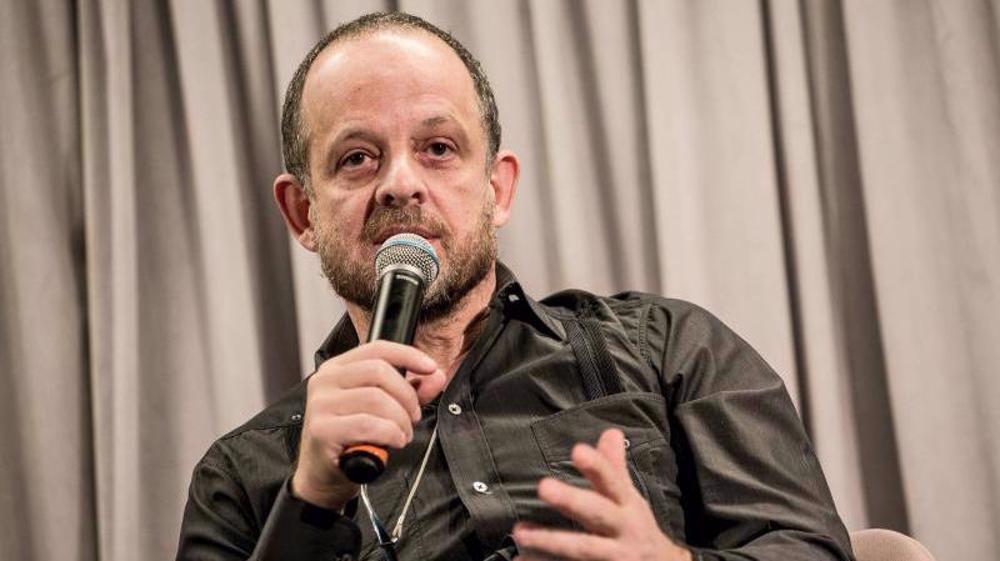Brazil’s Rousseff vows snap elections if survives impeachment
Brazil’s suspended President Dilma Rousseff has pledged to hold early elections if she survives a vote on her removal from office in an impeachment trial that is expected to conclude this month.
Rousseff, accused of illegally manipulating finances to hide a growing public deficit ahead of her reelection in 2014, is due to stand trial in the Senate on August 25, four days after the Rio Olympics end.
The Globo news organization reported that the actual judgment vote could take place between August 30 and 31.
In a letter to the federal Senate and Brazilian people that she read out on Tuesday, Rousseff said Brazil’s political and economic problems could only be resolved “through popular vote in direct elections.”
“The full restoration of democracy requires that the population be the one to decide what is the best way to expand governability and perfect the Brazilian political and electoral system,” Rousseff said.
“It’s the only way out of the crisis,” she wrote.
Rousseff admitted she had made mistakes, but said she had done nothing worthy of impeachment.
“I have listened to the tough criticisms of my government, for the errors committed,” she said. “I accept these criticisms with humility and determination so that we can build a new way forward.”
Rousseff further said that forcing her out through impeachment amounts to “an unequivocal coup.”

Rousseff impeachment: A timeline
October 9, 2015: Brazil’s federal audit court rules that Rousseff broke the law while managing the 2014 budget.
December 2, 2015: Eduardo Cunha, the president of the Chamber of Deputies, agrees to start anti-Rousseff impeachment proceedings.
December 11, 2015: Rousseff presents a petition before the Supreme Court to stop the process.
March 17, 2016: The Chamber of Deputies elects a special impeachment commission, which has a majority derived from the ruling coalition, including the Workers’ Party and the Democratic Movement Party (PMDB).
March 29, 2016: PMDB leaves the ruling coalition in a split that hurts Rousseff’s chances of derailing impeachment proceedings.
April 6, 2016: The commission publishes a report recommending Rousseff’s impeachment.
April 11, 2016: The commission decides, in a 38 to 27 vote, to let the Chamber of Deputies vote on impeachment.
April 15, 2016: The Supreme Court rejects Rousseff’s motion to stop the process.
April 17, 2016: A total of 367 out of 513 legislators in the parliament’s lower house vote in favor of Rousseff's impeachment.
May 12, 2016: Senators vote 55 to 22 to suspend the president for 180 days and hold an impeachment trial in the Senate, with Rousseff slamming the vote and saying she was “being judged unfairly.”
Michel Temer becomes interim president and announces his new cabinet.
May 24, 2016: The interim government is rattled by a leaked audio tape suggesting a plot against Rousseff. The scandal forces a number of key ministers in the new cabinet to resign.
June 28, 2016: An investigation by a team of independent auditors concludes there is no evidence that Rousseff participated in budget manipulation.
July 18, 2016: Cunha resigns less than three months after he orchestrated the impeachment.
August 16, 2016: The Senate votes to hold an impeachment trial for Rousseff, pushing her one step closer to dismissal from office. Her trial is due to take place in the week after the Olympics closing ceremony.

A week ago, the Brazilian Senate voted to hold an impeachment trial for the country’s first female president.
A two-thirds majority of the Senate, or 54 votes, would be needed to see her permanently removed from office.
If the trial acquits Rousseff, she will be allowed to serve out her term until 2018. But if it removes her permanently, then acting President Temer will become the full-fledged president until the next election in 2018.
Rousseff is also under fire over a graft scandal at state oil company Petrobras, where she was the manager before taking office as president in 2010.
The embattled leader has denied the allegations and repeatedly asserted that she has fallen victim to a plot by the extreme right.
In recent months, Brazilians have held numerous counter rallies in support of and against the impeachment process.
Iraq exhuming remains of 100 Kurdish women, children killed by Saddam
Panama rejects talks with US over canal control
HTS rulers name al-Qaeda operative as Syria's new spy chief
Iran voices concern about rising insecurity, violence in Syria
VIDEO | Karachi sit-in amplifies nationwide call for justice for Parachinar victims
Iran strongly condemns Israeli bombing of Yemen's civilian infrastructure
VIDEO | Press TV's news headlines
VIDEO | Israel and Iran’s Nuclear Facilities?
















 This makes it easy to access the Press TV website
This makes it easy to access the Press TV website